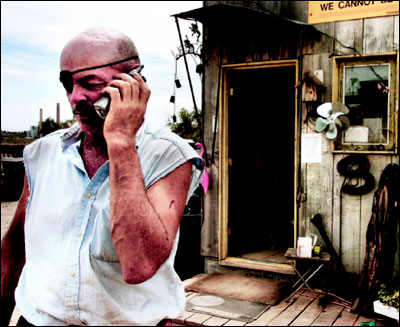 Among the most important aspects of starting a company is determining the target market. In many cases the obvious answer to determining a market is to go where the money is. Most of the time that means target the wealthy as that is the group that would be both interested in using and have the ability to afford the product. This is especially the case in the finance industry, however, unless we’re talking about a service like Bloomberg, there’s a good chance that a financial platform can be beneficial to those of all economic statuses.
Among the most important aspects of starting a company is determining the target market. In many cases the obvious answer to determining a market is to go where the money is. Most of the time that means target the wealthy as that is the group that would be both interested in using and have the ability to afford the product. This is especially the case in the finance industry, however, unless we’re talking about a service like Bloomberg, there’s a good chance that a financial platform can be beneficial to those of all economic statuses.
As I have become a bit of a tech/startup junkie, I have been attending as many meetups/presentations/network events in DC as possible and while this may surprise many, the DC startup community is incredibly vibrant and growing by the day. Last night I attended one such meetup where the presentation of a new platform, Hello Wallet was introduced. Hello Wallet is very simply a platform that allows for one to easily customize their finances and planning in order to meet short and long term goals. While I can’t comment on the usability or overall effectiveness of the platform, the business model presented did seem intriguing.
In order to go where the money was, the company decided to target mainly Fortune 500 companies that would pay a subscription fee and would then offer the service to their employees as part of an overall compensation/benefits package. Not a bad idea and a great way to generate revenue right off the bat. But what about those individuals who could really use some financial guidance but can’t exactly afford a professional or perhaps an expensive platform (sort of a chicken and an egg issue)?
Well, Hello Wallet has basically decided to subsidize financially strained individuals by providing one free subscription for every five that are sold. In a sense, one could argue that corporations are engaging in CSR simply by purchasing this product for their employees. According to the website, over 300,000 subscriptions have been issued in this manner and will no doubt continue to grow. Not a bad system. The startup has also partnered with a number of community development organizations both locally and nationally.
I’ve written more recently about the role of social media as a conduit for social responsibility due to its inherent transparency. But while platforms such as Twitter and Facebook allow consumers and companies the ability to interact and impact events around the world, there are plenty of startups that are creating platforms that can more directly and concretely benefit society. I’ve also been major proponent of making CSR principles a core aspect of a company’s business model and thus far it seems as though Hello Wallet has done just that. I think this scenario is exciting and encouraging and I look forward to seeing many more startups working with a similar model.
Image Credit by skettalee via Flickr under a CC license




